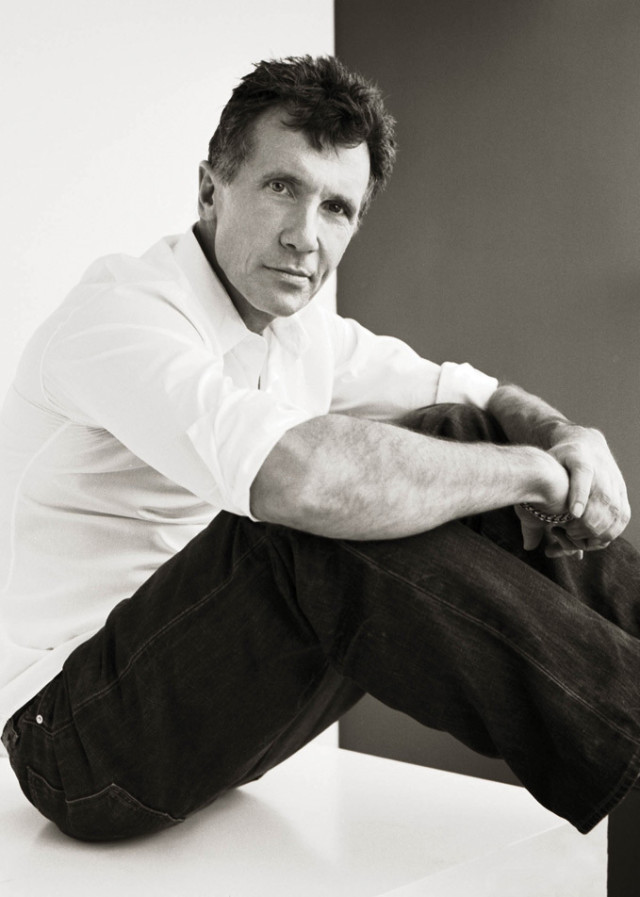Reading Music

Michael Cunningham says all of his novels somehow use music as inspiration—a fact that Northwest Sinfonietta highlights when it accompanied the author for a reading interspersed with selections from Schubert, Mozart, and Philip Glass’s score for the film adaptation of Cunningham’s Pulitzer Prize-winning The Hours.
Let’s get the basics out of the way first: From which books, in addition to The Hours, will you be reading here in April?
I imagine I’ll read—briefly—from my three most recent books: The Hours, Specimen Days, and the new one, which will, by then, I hope, have acquired a second half or, at the very least, a title.
Are you selecting passages according to their musicality or based on what pieces of music inspired them? Or both?
All my books are to some extent inspired by music, and all aspire to a certain musicality in terms of their language, so I suspect I’ll talk about both aspects.
You’ve said you listen to music every morning before you start writing—what kind of music do you usually play? And do you choose music that will inspire a certain rhythm and flow in your writing or is a mood-setter?
I do in fact listen to music every morning before I start writing, largely to—how to put this?—agitate the molecules of the air in the room. Do you know what I mean? To get a charge going, to help make the room in which I write feel inhabited by a force greater than myself. It’s not so much about setting a mood as it is about enlivening the local oxygen. I listen to a lot of new music—I rove the Internet and get tips from friends (many of whom it will not surprise you to hear are at least twenty years younger than I). There’s a lot of great stuff out there right now. Some current favorites of mine are Shearwater, Blitzen Trapper, The Dears, and Idiot Pilot. I have my first cup of coffee, listen for a while, settle in, and then I turn the music off and get to work.
You’ve also said your novels owe something to particular pieces of music. I know that Mozart and Schubert were important, but would you mind talking a little bit about which pieces inspired which books ?
There have been, it seems, what I could almost call soundtracks for every novel. It’s never calculated. But sometimes—often, actually—when I get stuck I’ll stop writing and listen to music for a while, and certain kinds of music, certain composers and singers, just feel like what I want to hear while writing a particular novel. The Hours, as you say, kept suggesting Mozart, Schubert, and Brahms. With Specimen Days, I was all over the place: old Dylan, Lou Reed, Steve Reich, Gregorian chants, Chopin. And some newer stuff: Cowboy Junkies, Damien Rice, a beautiful country singer named Patrick Park. Flesh and Blood was all about Laurie Anderson’s album Big Science. I thought about putting her on the acknowledgments page, but since we’d never met, it felt pretentious. You know, like, “I’d like to acknowledge Tolstoy and Flaubert…”
How did you feel the first time you heard the Phillip Glass score for The Hours?
I loved Philip’s music. All these years later, I still can’t quite believe it exists.
Do you write your books thinking that, like music, they should be heard and not just read?
No. If I meant my books to be heard— or, rather, if we lived in a world like Homer’s, in which storytellers would visit your village and tell you a story because no one in the village could read— I’d write them differently. The cadences and rhythms, even the vocabulary, would be different. It would all be stronger, sharper, and shorter. The word read aloud works in ways that the word on the page doesn’t, and vice versa. That’s why some readings by fiction writers are a drag— they (okay, we) are reading publicly something that was meant to be read silently, in private.
Which of your books is the most musical?
A Home at the End of the World was the one based most consciously on music. I wanted, specifically, to emulate what I thought of as a rock ’n’ roll voice, though I don’t know if I can tell you what I mean by that. Jangly, I guess. In your face, no quiet parts. I wanted, too, a rock ’n’ roll sensibility, at least in terms of rock music’s ability to take the most ordinary experiences and elevate it to…not operatic heights, exactly, but heights of a particular kind. I mean, a million guys have run off with poor, less-than-beautiful girls, and then there’s Bruce Springsteen singing about it in “Born to Run.” It becomes a whole new degree of experience. I tried to inject some of that into Home.




